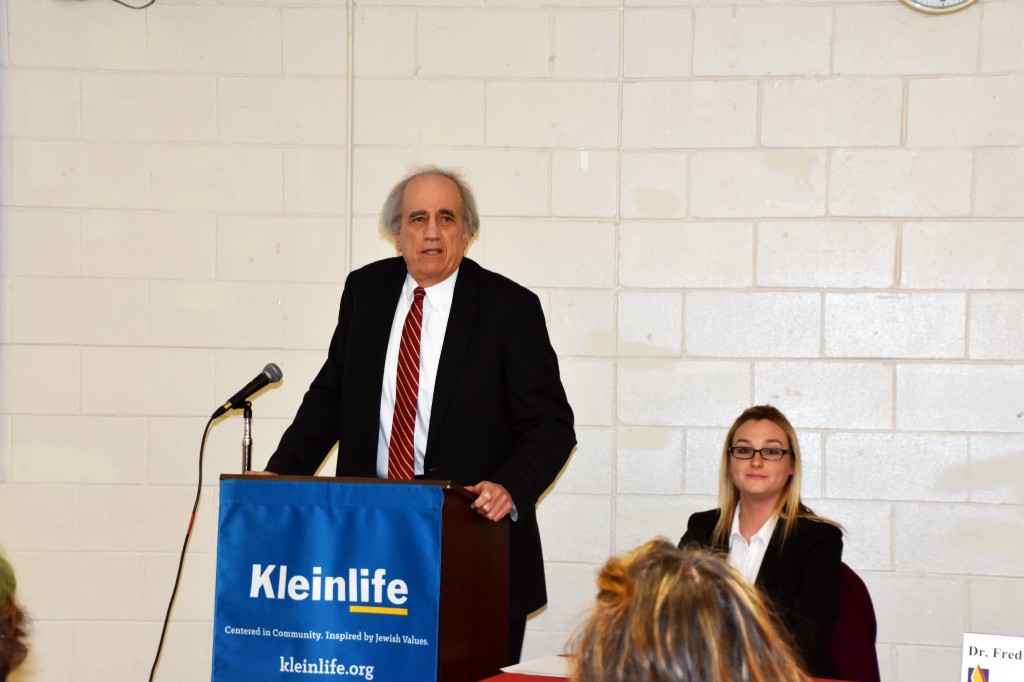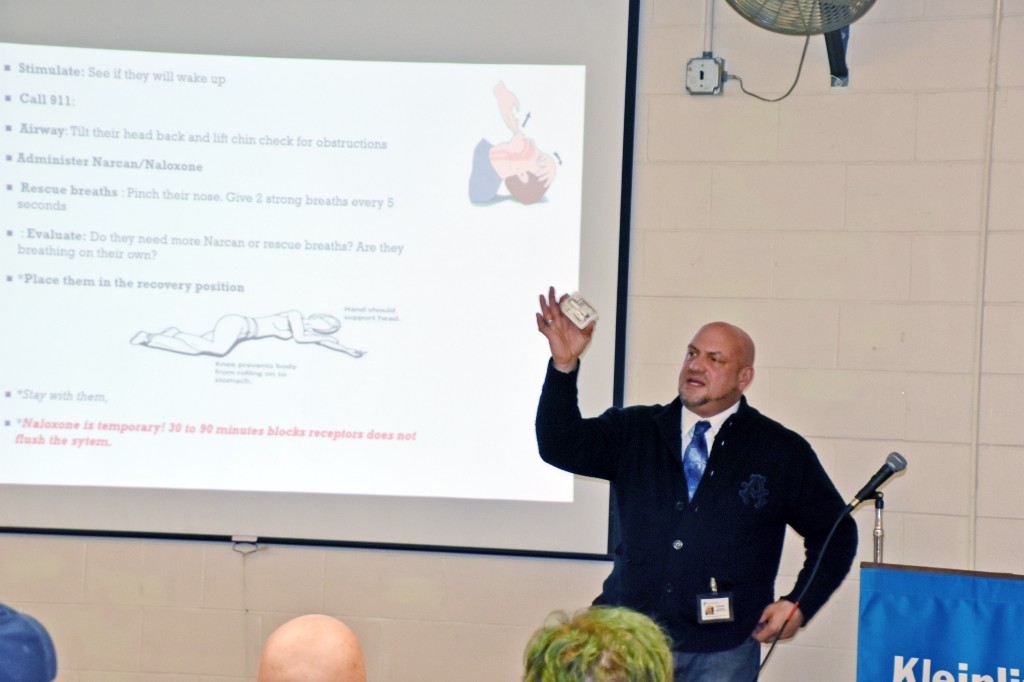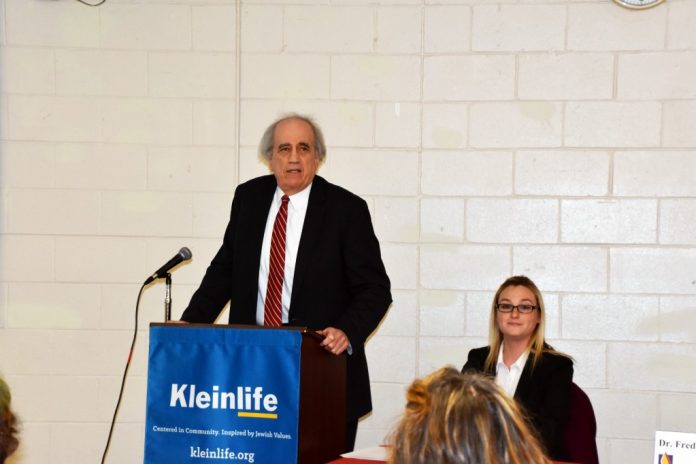State Rep. Martina White holds her first community forum on the opioid epidemic.

Last Thursday, state Rep. Martina White hosted a community forum on the fight against the opioid epidemic at KleinLife, 10100 Jamison Ave. This was the first of two the representative has planned on the topic.
White welcomed members of the community for the discussion and provided three guest speakers to discuss in depth their expertise on the matter and how best to combat it.
White opened up the event talking about the urgency at which this situation should be handled.
“We know that this is a serious problem facing our community and that we have to work together to actually educate, prevent, intervene and treat those who are susceptible to or who have already been impacted by addiction,” said White.
A hot-button topic in the city of Philadelphia is the idea of safe injection sites or, as White referred to them, “Community User Engagement Sites.”
This issue has been on the forefront of the political conversation in Philadelphia since the district attorney’s race, and White stated her definitive opposal to these proposed sites.
“I am personally against placing an injection site into our neighborhoods here in the Far Northeast,” said White. “With that said, the city has not indicated where specifically they are considering placing these sites.”
White reinforced her position with quotes from state Attorney General Josh Shapiro and Philadelphia Police Commissioner Richard Ross.
”I’ve made it clear to the city, there would need to be changes in federal and state law to allow that,” was the quote White provided from Shapiro on the matter.
“There are many means to the same ends,” White quoted from Ross.
The first guest speaker, Dr. Fred Goldstein, spent his time addressing what addiction really is as well as dispelling myths on other substances.
Goldstein discussed the two types of drug abuse; experimental and dependence. He detailed the specific differences between the two and labeled the warning signs of dependence.
He mentioned that when certain people who are prescribed painkillers claim to lose them, often it’s a sign that there is a problem of dependency.
Goldstein stated that the epidemic is hitting people from all different classes.
“It doesn’t make a difference how much the family has,” said Goldstein.
Goldstein believes overprescribing by doctors is still a dilemma, but no longer a major cause in addiction today.
“I say minor because this day, there are fewer doctors doing this because the pressure’s on, in the past it happened more, in my opinion,” Goldstein said.
He also spent a great deal of time dispelling what he believes are common myths of marijuana use.
“The National Institute of Drug Abuse, the majority of people who use marijuana, now this is coming from the government, not me, do not go onto other harder substances, not many,” Goldstein stated. “…Now, I’m not suggesting people go out and smoke. I think it should be regulated and we have provisions in the state to go out and do research, but there has to be an understanding of what marijuana does and does not.”
Frank McCartney, diversion outreach coordinator for the Philadelphia division of the Drug Enforcement Agency, talked about the specifics of how the DEA is handling this crisis locally.
“Currently, the drug threat facing this area, Philadelphia, would be opioids, heroin, fentanyl,” said McCartney. “It’s pretty much reflective of what’s facing the nation as well.”
McCartney read the fatality projections in 2017, due to opioid overdoses, which was alarming to the audience.
In Pennsylvania, 4,642 people died of drug overdose and Philadelphia had “approximately 1,250” deaths.
“The alarming thing about the Philly number was that it’s up 38 percent over 2015,” said McCartney. “That’s a big jump percentage wise.”
McCartney discussed ways to safeguard prescription pills in one’s house, but believes the most effective way to combat this is prevention.
“Prevention is so key at this point,” said McCartney. “It’s the only hope that I really see for ultimately turning this situation around.”
He urged people to go to DEA.gov for more information.

Elvis Rosado has been a member of Prevention Point Philadelphia for the past 25 years. Rosado has been on the frontlines in fighting this epidemic over recent years and discussed what makes Philadelphia unique in this fight.
“Philadelphia has some of the purest heroin in the country right now, unfortunately,” said Rosado.
Rosado detailed his past with drug abuse and how he has since been clean for 26 years as of Feb. 1. He tried to urge those in attendance that if the pain for whatever they are prescribed isn’t too great, try to stray away from opioids and take something less powerful.
Rosado believes the use of narcan to combat the opioid epidemic is essential.
“This is something that I think should be in every household at this point,” said Rosado.
Another troubling fact is the quantity in which the United States takes opioids.
“The United States is 5 percent of the world’s population. We consume 95 percent of the world’s opiate,” Rosado said.
A Russian translator was present for this discussion, but was not needed.
White’s next community forum on the fight against the opioid epidemic will be held Thursday, April 12, from 6:30 to 8 p.m. at Archbishop Ryan High School, 11201 Academy Rd. ••
John Cole can be reached at [email protected]





